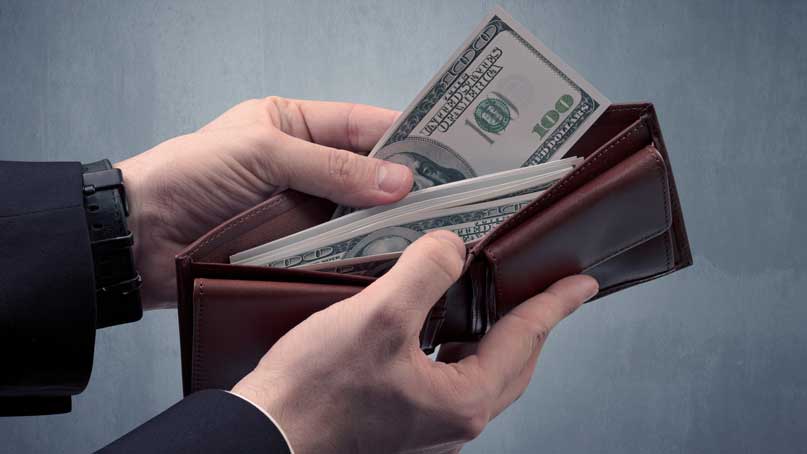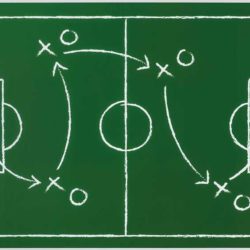At the end of each year, I pre-fill my Time Diary for the upcoming year with activities I know I will be doing. This includes three entries for checking my credit report. I make three entries because I check each of the three major credit bureaus (Experian, Equifax and Transunion), and I separate when I check each of them by four months. Why four months? You can check your credit report for free once each year* (go to AnnualCreditReport.com to get your free credit report from any of the three bureaus). By spreading out the use of my free reports by four months, I hit all three credit bureaus in a calendar year, and I’m never out of touch with my credit for more than a few months, nipping any identity theft issues or other credit problems early.
*As a goodwill gesture during the pandemic, the credit bureaus are now offering unlimited free reports. However, I don’t know how long this will last, so I’m continuing with my disciplined cadence of every four months, assuming that the credit bureaus will revert to just one freebie per year sooner than later.
Keeping tabs on your credit is a key part of good financial hygiene
Brushing and flossing daily is part of good oral hygiene. It’s a habit you build that you incorporate regularly without needing much willpower. Maintaining good credit ranks up there with brushing and flossing but for your financial hygiene. It’s like paying your taxes on time, maxing out your 401k (at least to the employer match if you can’t do the maximum!) and avoiding out-of-network ATM and other stealth bank fees. Just do it.
When I pull my credit report, I scan the summary to see if any accounts are past due (they shouldn’t be because I pay all bills on time – another key part of good financial hygiene). All types of loans appear on your credit report – e.g., mortgages, home equity lines and loans, car loans, credit cards, student loans. I look at each account to make sure I recognize it. If there is an account I don’t recognize, it could be a warning sign that someone opened a credit card or took out a loan using my identity. You’ll also see closed accounts (e.g., cancelled credit cards, paid-off loans) on your report, so over the years, your credit report gets longer and longer. My most recent Equifax report clocked in at 125 pages! We owned up to 15 properties at one point, and some properties have been refinanced multiple times, so there are a lot of past and present accounts on there.
You can also see different iterations of your name that the credit bureaus have (e.g., maiden and married name), different address where you have lived and different employers you have worked for. The credit report also includes instructions for how to dispute information that is incorrect. I once had a tuition bill listed as past-due when it had actually been fully paid and on time. I followed the instructions on the credit report, and the erroneous item was fixed. It took some back and forth with the school and with the credit bureau, but it was orderly and straightforward.
In addition to your credit report, monitor your credit score
While your credit report itemizes the different accounts in your name, your credit score is a numerical value that rates your creditworthiness as a borrower. This is a score that lenders and credit card companies use to determine whether to approve you for a loan or credit card. Your credit score also influences what terms you’re offered – e.g., how much you can borrow and at what interest rate.
Free sites like Credit Karma give you access to your credit score and suggestions for how to improve it. Credit Karma tracks the score assigned to you by TransUnion and Equifax, but Experian also issues a credit score and calls it the FICO score. Unfortunately, each of the credit bureaus has a slightly different range for credit scores. TransUnion and Equifax range from 300-850, while FICO starts at 250. Generally, a score in the uppermost 700’s to 800’s is considered excellent. High 600’s to high-700’s is very good. Fall below the mid-500’s, and you will have difficulty borrowing.
When you pull your credit report (for FREE remember!) from each of the credit bureaus, they sometimes try to upsell you on revealing your credit score. Your credit score is not part of your credit report. However, you can use Credit Karma to get a free score and don’t need to pay. If you apply for a loan or credit card, and the lender or card company pulls your credit, they also should provide you with a score for free.
My score fluctuates a few points up and down more often than you’d think because we have a home equity line of credit that we draw and pay back multiple times a year for big expenses (e.g., our recent home renovations) and to smooth out lumpy cash flow from our consulting business. Recently, I have taken advantage of several big credit card bonus offers, and the new cards in my name have decreased the average age of my accounts, which dings my score. Other factors that influence your score are:
- how much credit you’re using, aka your utilization rate (so when I draw down the HELOC it drags down my score);
- whether you pay on time;
- if there are any derogatory marks on your history, such as bankruptcies;
- how many credit inquiries are made (if lots of lenders are inquiring, that implies you’re looking around for money which also dings your score); and
- the number of accounts you have, both open and closed.
A higher credit score would have saved us $35,000 on a mortgage refinance

I say “would have” because we ended up not proceeding with the mortgage refinance, but had we closed the transaction, our strong credit score would have made us eligible for a lower interest rate by half a percentage-point. A half-point doesn’t sound like a big difference, but it would have meant $100 saved each month in the mortgage payment, and over $35,000 saved in interest over the 30 years.
$100 savings per month could cover your Internet bill, pad your savings account or pay for an annual vacation. In this way, maintaining a good credit score is a much more effective way to juice up your savings than clipping coupons or spending hours searching for a deal. You can see for yourself how much you can save when interest rates vary by using an online mortgage calculator, or you can run the analysis on Excel.
We started optimizing our children’s credit history early
Because your credit history drives your ability to borrow and what terms, we wanted our children to get a jumpstart on building a good history. First of all, I pull their credit reports at the same time that I do mine. Secondly, we added them to one of our credit cards, so they could show some transaction history, including on-time payments. Being an authorized user is not weighed as heavily as having a credit card in your own name, but it’s a start, especially when they were minors with no hope of getting credit on their own. Once they entered college, they did open a credit card in their own names.
Both of our children have some student loans, so they have variety in their borrowing history. (Interestingly, our oldest has borrowed less for grad school than our youngest for undergrad because Oldest went to a city college for undergrad, which saved the equivalent of a house compared to Youngest!) Having different types of accounts – i.e., not just credit cards but also mortgage, car, student or other loan – helps boost your score. That’s not a good enough reason to take out a loan, but it’s nice to know that, if you do need to borrow, it can sometimes help your credit score.
Strong credit got us closer to FIRE

Strong credit also got us approved for great credit card deals – in the last few years, we scored 100,000 bonus points on three travel credit cards. One bonus haul has paid for several trips, and we’re still drawing down the bonus points. One was used for a $1,250 credit to our Lowe’s bill which essentially paid for our new refrigerator. The last bonus haul is yet to be used, but will pay for more travel as the pandemic allows. Since travel is a priority that we would have spent on anyway, the savings are significant.
Strong credit also qualified us for loans on multiple rental properties – a key source of passive income for us, which allowed us to hit our FIRE number years earlier than we expected. Our high credit scores also qualified for low rates, saving tens of thousands of dollars on interest – enough to be a down payment on the next rental or to add significantly to our paper portfolio.
Have I convinced you yet that good credit is a big deal?


 We are Scott and Caroline, 50-somethings who spent the first 20+ years of our adult lives in New York City, working traditional careers and raising 2 kids. We left full-time work in our mid-40’s for location-independent, part-time consulting projects and real estate investing, in order to create a more flexible and travel-centric lifestyle.
We are Scott and Caroline, 50-somethings who spent the first 20+ years of our adult lives in New York City, working traditional careers and raising 2 kids. We left full-time work in our mid-40’s for location-independent, part-time consulting projects and real estate investing, in order to create a more flexible and travel-centric lifestyle.  Financial independence and early retirement is not something we originally focused on, but over time realized it was possible. Our free report,
Financial independence and early retirement is not something we originally focused on, but over time realized it was possible. Our free report, 







